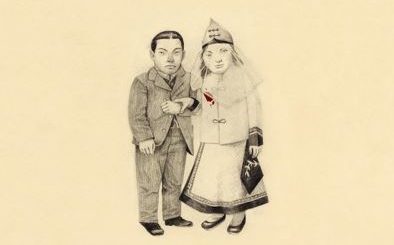“When the War Came” by The Decemberists
“When the War Came” is generally based on an event which transpired during World War II that is known in the history books as the Siege of Leningrad. More specifically, in this case the narrator takes on the role of a worker at a facility found within Saint Petersburg (aka Leningrad) called the Pavlovsk Experiment Station.
Said facility is what we laymen would generally refer to as a seed bank. During the aforementioned event, the city was cast into a situation where the Nazis did not allow any supplies, including food, to enter therein. Note that the said assault lasted for approximately two and-a-half years. Owning to this, many people did starve to death. According to some reports, the situation was so dire that some even became so desperate that they resorted to cannibalism.
Narrator of “When the War Came”
To reiterate, in this particular song, the vocalist is singing from the perspective of one of the workers at the Pavlovsk Station. As the story goes, said scientists were so dedicated to their profession that they actually starved to death as opposed to eating the edible seeds and tubers located within the facility.
So in the first verse, we find the vocalist briefly detailing said conviction. In the second, he appears to be cursing the Russian government for leaving the people of Leningrad assed out like that. And in the third, he is once again restating the dedication he and his colleagues have not to loot the seed bank, even at the cost of their own “starvation”.
Ultimately, it appears that the thesis sentiment isn’t one that’s like presenting these scientists as heroes per se. Rather, based on the unique experience of said individuals, the goal of The Decemberists seems to be illustrating just how messed up things were for some of the victims directly involved “when the war came”.

Release Date of “When the War Came”
“When the War Came” is a song by The Decemberists, an American rock band from Portland. The song was released on October 3 of 2003 as part of the album, “The Crane Wife”. The said album was released as the band’s fourth studio album.
Credits
The song was composed by band member, Colin Meloy whilst record producers Tucker Martine and Chris Walla took charge of its production.
“The Crane Wife” Album
“The Crane Wife” was produced through collaboration between the band and the aforementioned record producers.
The album was released in October of 2006. American record label Capitol Records and an independent London based record label, Rough Trade Records backed the album’s release.
By February of 2009, 289,000 copies of “The Crane Wife” had been sold in the United States alone.
International online magazine, PopMatters, placed the album at No. 19 on its 2006 top 60 album list. It was placed at No. 41 on Pitchfork’s list, “Top 50 Albums of 2006”.

The Siege of Leningrad during WW2
This was a long-lasting military damage management tactic employed by the Nazi German, Army Group North, headed by Adolf Hitler against the federal Soviet city of Leningrad in Russia. Leningrad is presently known as Saint Petersburg. The siege was to cut off all Leningrad’s communication, supplies, and basically their support system of living.
Before the Siege, Leningrad was a very important community in the economic and political ranking in Russia. Leningrad had a far more productive industrious and housing front as compared to the other cities in Russia.
The plot to take over Leningrad was carefully planned out involving both the German and Finnish armed forces. The plans to capture the city were in motion in several years prior to 8th of September 1941, when the siege began. The Unified armed forces of Nazi Germany, Wehrmacht blocked the last existing road that led to Leningrad.
The impact of the siege was so severe that many began to starve to death. The death rate was at least 100, 000 people per month. The siege and starvation in the city were so intense that cannibalism began to increase. In about a year, Leningrad had recorded 1,216 murders aside from the starvation deaths. The siege lasted for 2 years, 4 months, 2 weeks, and 5 days. It is described as the most lethal siege in world history.








